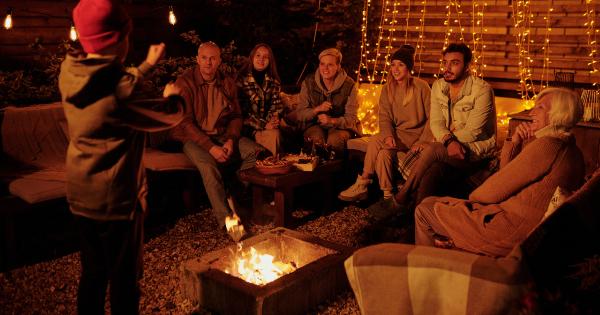Sleepovers are a quintessential part of childhood. Spending the night at a friend’s house can be fun, exciting, and a great bonding experience.
However, as a parent, it’s natural to worry about your child’s safety and well-being while they are away from home. Should you allow your child to sleep over at a friend’s house? In this article, we will explore the pros and cons of sleepovers and what you need to consider before making a decision.
The Pros of Sleepovers
There are many benefits of sleepovers for children. Firstly, it’s a great way for them to socialize and develop their social skills.
Children learn invaluable lessons about sharing, communication, and conflict resolution when they spend time with their friends. Additionally, sleepovers can help children build trust and lifelong friendships. Sleepovers provide a unique opportunity for children to spend quality time with their friends and bond over shared experiences.
Another advantage of sleepovers is that they help children become more independent. Spending the night away from home can help children learn how to cope with new and unfamiliar situations.
This experience can be particularly helpful for shy or introverted children who may find it difficult to make new friends.
The Cons of Sleepovers
Despite the benefits of sleepovers, some parents may have concerns about their child staying at a friend’s house. Firstly, supervision may be a concern.
Parents may be worried about whether or not the child’s friend’s parents will be able to provide adequate supervision. They may also be concerned about the safety of the home and whether or not the child will be safe in an unfamiliar environment.
Additionally, children may be exposed to inappropriate content or behavior while at a sleepover, which can be distressing for both the child and their parents.
Another issue with sleepovers is that they can disrupt a child’s routine and lead to a lack of sleep. Lack of sleep can have a negative impact on a child’s behavior and performance at school, which is something parents need to consider.
Some children may also struggle with homesickness or anxiety when away from home, which can cause distress for both the child and their parents.
What to Consider Before Allowing Your Child to Sleepover
So, how do you decide whether or not to allow your child to have a sleepover? Here are some things to consider:.
1. The Child’s Age
Younger children may not be ready for sleepovers, while older children may be more capable of handling the experience. Consider your child’s age and maturity level when deciding if they are ready for a sleepover.
2. The Friend’s Home
Before allowing your child to sleep over, it’s important to assess the safety of the home.
Are there any potential hazards or safety risks? Is the home clean and well-maintained? Additionally, try to get to know the child’s parent or guardian and gauge their level of responsibility and supervision.
3. Your Child’s Comfort Level
Some children may be more comfortable with sleepovers than others. It’s important to take into account your child’s personality and temperament, as well as any anxiety or homesickness they may experience when away from home.
4. Your Level of Comfort
Ultimately, you need to feel comfortable and confident in your decision to allow your child to sleepover. If you have concerns or doubts, it may be best to postpone the sleepover until you feel more comfortable.
Tips for a Successful Sleepover
If you decide to allow your child to have a sleepover, here are some tips for making it a success:.
1. Set Ground Rules
Before the sleepover, make sure you and your child’s friend’s parent or guardian establish ground rules for the evening. This can include things like bedtime, food preferences, and screen time limits.
Make sure your child knows the rules and understands the consequences of breaking them.
2. Prepare Your Child
Talk to your child about what to expect during the sleepover. Let them know how long they will be away from home and what activities they will be doing. Make sure your child has any necessary items, such as a toothbrush, pajamas, and a change of clothes.
3. Stay in Contact
Stay in touch with your child throughout the evening. You can arrange a time for a phone call or text message to check in and make sure your child is comfortable and safe.
4. Be Available
Make sure you are available in case your child needs to come home early or if there are any issues that arise during the sleepover.
You may also want to establish a signal with your child that lets them know they can come home if they are feeling uncomfortable or unhappy.
Conclusion
Sleepovers can be a fun and memorable experience for children. However, as a parent, it’s important to weigh the pros and cons of sleepovers and make an informed decision.
By considering your child’s age, the friend’s home, your child’s comfort level, and your level of comfort, you can decide whether or not to allow your child to sleepover. If you do decide to allow a sleepover, make sure you set ground rules, prepare your child, and stay in contact throughout the evening to ensure a successful and safe experience.





























